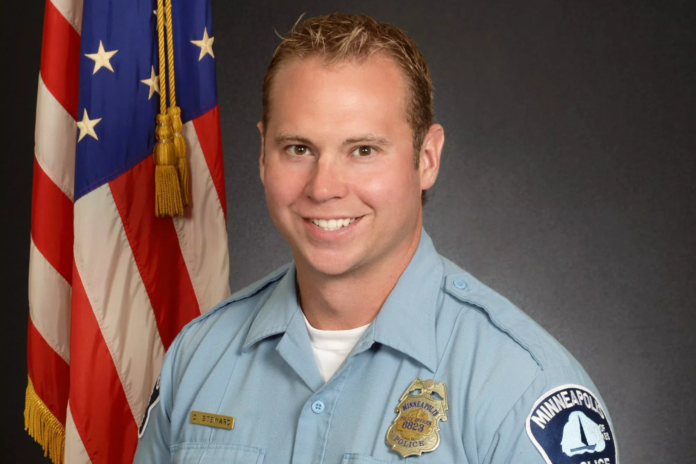Former Minneapolis police officer Chris Steward, a 14-year veteran, recently started a nonprofit with the goal of helping fellow officers overcome post-traumatic stress disorder and depression.
“This was my opportunity to serve the community that I loved and respected,” Steward told Fox 9. “I love my profession. I loved the people I served. I loved the people I worked with.”
He started the organization, Heroes Helping Heroes (HHH), after realizing he had missed his own struggle with PTSD for years. Steward hopes to serve some 300 members by the end of the summer.
HHH brings together police, fire and EMS for bonding sessions, including fishing, camping, golf, and horseback riding.
But it was not easy getting to this point.
Steward was one of more than 200 officers who left the MPD in the months following the death of George Floyd and ensuing unrest that destroyed parts of Minneapolis.
Many left due to mental health struggles, such as PTSD.
Steward felt he had to choose between his profession or his life and family after witnessing rioters burn down the Third Precinct, which he watched real-time from closed-circuit TV screens.
“It was just being in a rage when I got to work. Essentially, I’d rather eat my own gun than go to work. It came to that point. It was that bad,” he explained. “I knew I could no longer do this profession. There was a point it was either this profession or my life, and I had to choose.”
“Everything figuratively was coming undone,” his wife said. “He was mad, he was depressed. He was emotionally volatile.”
A recent study surveying officers across the country found that at least 90% believe the stigma around mental health issues has a negative impact on law enforcement personnel’s help-seeking behavior.
“This is a particularly concerning finding in light of the high prevalence of mental health disorders among police officers, including anxiety, depression, and PTSD,” a Minnesota-based psychologist told Alpha News Tuesday. “The nature of the job, which involves repeated physical and mental exertion, long hours and time away from family — and frequent exposure to highly distressing situations — combined with the level of stigma surrounding seeking help and support, results in particular vulnerability for officers in the line of duty.”
When he looks back, Steward says he had symptoms of PTSD for nearly a decade.
“But I was caught up in work and I was caught up in life and didn’t have the opportunity to reflect on how it was changing and impacting me,” he claims.
Now he’s ready to help others avoid similar pitfalls.
“It’s nice knowing that you’re helping somebody. That’s why I got into law enforcement, to help people, and through this foundation, I think we’re definitely helping people.”
A.J. Kaufman
A.J. Kaufman is an Alpha News columnist. His work has appeared in the Baltimore Sun, Florida Sun-Sentinel, Indianapolis Star, Israel National News, Orange County Register, St. Cloud Times, Star-Tribune, and across AIM Media Midwest and the Internet. Kaufman previously worked as a school teacher and military historian.








